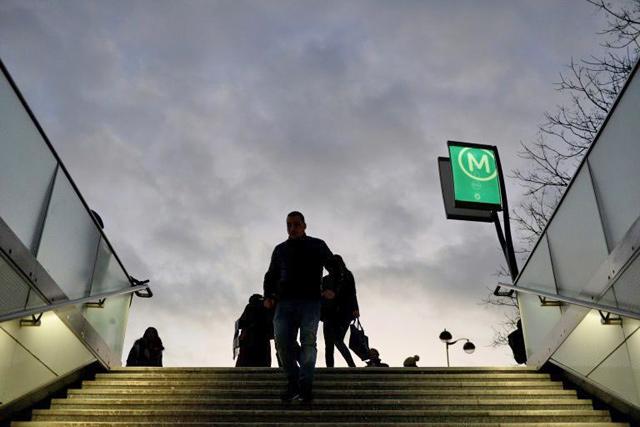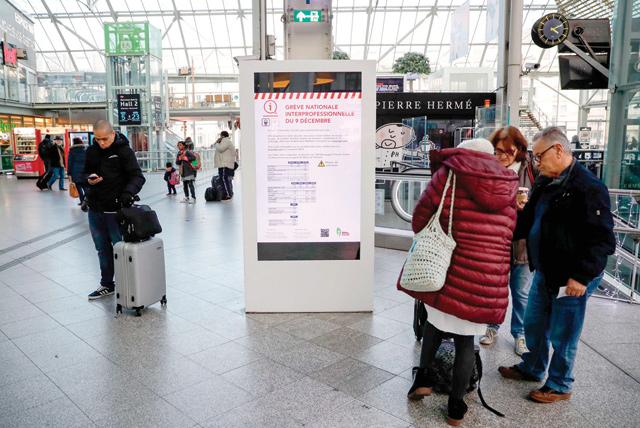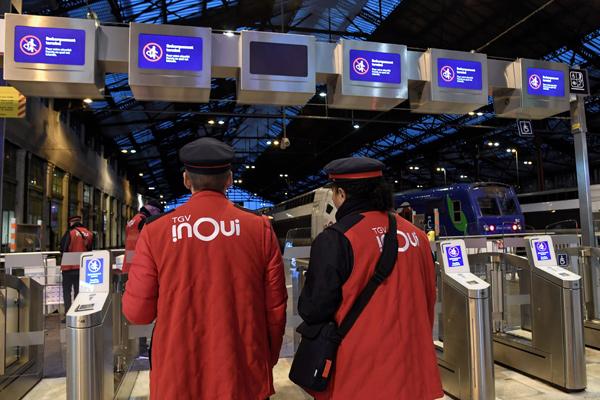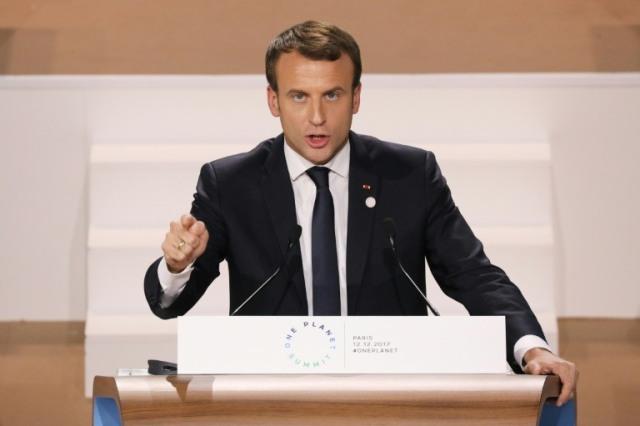You are here
Tensions mount over French transport strike
By AFP - Dec 15,2019 - Last updated at Dec 15,2019

The prospect of a protracted stand-off has businesses fearing big losses during the crucial year-end festivities (AFP photo)
PARIS — Tensions between the French government and unions opposed to pension reforms mounted on the 11th day of a crippling transport strike on Sunday, with the prime minister warning the French would not tolerate being stranded at Christmas.
The pensions overhaul, unveiled this week by Prime Minister Edouard Philippe, would fold France’s 42 separate pension schemes — including the early retirement schemes covering train drivers, dockers and several other professions — into one system that requires people to work for longer.
Philippe particularly angered the unions by proposing a reduced payout for people who retire at the legal age of 62 instead of a new, so-called “pivot age” of 64.
Train traffic was again severely disrupted on Sunday. In Paris, meanwhile, public transport remained at a near-standstill, with only two of the city’s 16 metro lines operating and most national rail services cancelled.
The unions have announced a third day of mass protests for Tuesday, which is expected to bring tens of thousands of people onto the streets.
The strike organisers are hoping for a repeat of 1995, when they forced a centre-right government to back down on pension reform after three weeks of metro and rail strikes just before Christmas.
The prospect of a protracted stand-off has businesses fearing big losses during the crucial year-end festivities, and travellers worried that their holiday plans will fall through.
Fears for
Christmas travel
Philippe told Le Parisien daily in an interview for its Sunday edition that the French, many of whom travel to be with family at Christmas, would not take kindly to being kept apart.
“Christmas is an important time,” he said. “I don’t think the French would accept being deprived of that time,” he said, warning the unions to “assume their responsibilities”.
He sought to downplay the scale of 11 days of industrial action, which have hit schools, key ports and oil refineries and starved retailers and restaurants of footfall.
“Things are not completely blocked but it’s bothersome,” he said.
The government has insisted the pension reforms are necessary to make the current indebted system, which is more favourable to public sector workers, fairer and more sustainable.
A poll in Le Journal du Dimanche weekly however showed 54 per cent of the French either supporting the strikers or feeling sympathetic towards their cause, up from 46 per cent before the strike began on December 5.
Only 30 per cent of those polled opposed the strike outright.
Backed by the favourable polls, the train drivers have vowed not to budge unless the government withdraws the reforms.
“If the government wants the conflict to end before the holidays, they have all of next week to take the wise decision and scrap the points-based pension plan,” Laurent Blum, the general secretary of the hardline CGT-Cheminots drivers’ union told AFP on Saturday.
‘It’s very simple’
France’s moderate CFDT union backed the action after the government’s announcement that those who retire before the “pivot age” of 64 would not receive a full pension.
“It’s very simple: For the CFDT to change its mind on this bill, the government must agree to withdraw the pivot age, that’s all there is to it,” CFDT leader Laurent Berger told Le Journal du Dimanche.
But Berger, who supports the idea of moving to a single pension system, reiterated that he was open to dialogue.
“We have to break this deadlock,” he said.
Philippe has struck a firm note, repeating his “door is open” to the unions, with whom he plans more talks this week, while insisting that the government will stay its course.
In the interview with Le Parisien, he backed the architect of the pension reform, Jean-Paul Delevoye, who has been hit by allegations of conflict of interest.
Delevoye omitted to disclose several positions he held since entering government to the state body for transparency in public office.
Under the French constitution, members of the government are prohibited from carrying out any professional activity in addition to their official functions.
While most of Delevoye’s roles were on the boards of charities, he has had to pay back tens of thousands of euros in income earned from two of the positions, from which he has since resigned.
Philippe said he had “complete faith in Jean-Paul Delevoye’s good intentions”.
Related Articles
PARIS — Public transport in France was crippled for a fourth day on Sunday as the government prepared to respond to anger over pension refor
PARIS — Travellers across France scrambled on Saturday to begin their Christmas getaways with trains cancelled, roads jam-packed and nerves
Paris - French state railway operator SNCF warned Sunday of major disruption caused by strikes this week that analysts say will be a major t



















